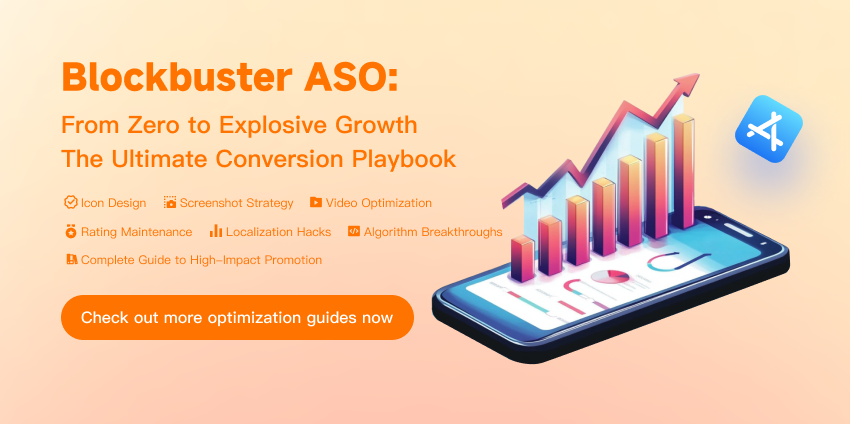
Loading...
Free consultation with ASO specialists
Doing ASO for the first time or have no idea how to carry out targeted optimization of your app?
We offer one-on-one customized services provided by app marketing specialists
App Store Behavior
What is App Store Optimization
App Store Behavior refers to a series of operations and activities that users perform within an app store (such as the Apple App Store). These behaviors cover multiple aspects, including searching for apps, browsing app detail pages, downloading apps, providing ratings and reviews, and uninstalling apps. It is a concrete manifestation of user interaction with the app store, reflecting users' habits, preferences, and decision-making processes in the process of acquiring and using apps.
The Importance of App Store Behavior
App store behaviors (such as downloads, search keywords, user ratings and reviews, dwell time, etc.) are key indicators that affect the visibility and commercial value of an app. Their importance is reflected in three aspects:
-
The core basis for algorithm ranking and traffic allocation
App stores (such as Google Play, App Store) dynamically adjust app rankings based on user behavior data. High-frequency search keywords, high download conversion rates, positive ratings and reviews are signals that will be identified by the algorithm and recommended to potential users with priority.
-
Trust endorsement for user decision-making
User behavior (such as ratings, reviews, and screenshot views) directly affects download conversion. Data shows that more than 70% of users will refer to ratings (4.0+ as the baseline), while negative reviews may increase the download loss rate by 30%. Positive behavior accumulation can build brand trust and form a virtuous cycle of "download - positive review - more downloads".
-
Data foundation for developer strategy optimization
Behavioral data can accurately reflect the pain points of user needs. For example, search term popularity reveals market demand trends, low ratings expose functional defects, and dwell time reflects page appeal. Developers can optimize ASO (App Store Optimization), adjust feature design or iterate marketing strategies based on this to reduce customer acquisition costs.
Relationship with ASO (App Store Optimization)
-
Search Ranking Optimization
User search behavior is an important focus of ASO. Understanding the commonly used search keywords by users and reasonably applying these keywords to the application's title, description, and keyword fields can improve the ranking of the application in search results. The user's search heat and trends will also affect the ASO strategy. Popular search terms may change over time, and timely adjustments to the application's keyword strategy can increase the exposure rate of the application.
-
Application Details Page Optimization
The design of the app details page needs to fully consider the user's browsing behavior. Professional and attractive metadata can increase users' interest in and trust in the app. Users' ratings and reviews are also an important part of the app details page. Actively responding to users' ratings, solving problems raised by users, can improve the reputation and ratings of the app, thus attracting more users to download.
-
Download conversion rate improvement
By analyzing user behavior data, understanding the obstacles that users may encounter during the download process, such as slow download speed and complex payment process, and carrying out targeted optimization, the download conversion rate of the application can be improved. For example, simplifying the payment process and providing multiple payment methods can make it more convenient for users to download applications.
App store behavior is the core link connecting users, algorithms and developers. It determines both short-term traffic acquisition efficiency and long-term brand value and market competitiveness. Continuously optimizing user behavior indicators (such as improving keyword relevance and guiding positive reviews) is a key strategy for mobile applications to achieve sustainable growth.
Related terms
